Home - News > Industry NewsIndustry News
The production process of straight seam steel pipe
Update:2023-12-13 View(s):1018 Keywords :The production process of straight seam steel pipe
Straight seam steel pipes can be divided into high-frequency straight seam steel pipes and submerged arc welded straight seam steel pipes according to the production process. Submerged arc welded straight seam steel pipes are divided into UOE, RBE, JCOE steel pipes, etc. according to their different forming methods. The following introduces the most common forming processes of high-frequency straight seam steel pipes and submerged arc welded straight seam steel pipes.
Submerged arc welding process for welded steel pipes
1. Plate detection: After the steel plates used to manufacture large-diameter submerged arc welded straight seam steel pipes enter the production line, they are first subjected to full-plate ultrasonic inspection;
2. Edge milling: Use an edge milling machine to perform double-sided milling on both edges of the steel plate to achieve the required plate width, plate edge parallelism, and bevel shape;
3. Pre-bending edge: Use a pre-bending machine to pre-bend the edge of the board so that the edge of the board has a curvature that meets the requirements;
4. Forming: On the JCO forming machine, the first half of the pre-bent steel plate is stamped into a "J" shape through multiple steps, and then the other half of the steel plate is similarly bent into a "C" shape, and finally the opening is formed. "O" shape
5. Pre-welding: join the formed straight seam welded steel pipes and use gas-shielded welding (MAG) for continuous welding;
6. Internal welding: Use longitudinal multi-wire submerged arc welding (up to four wires) to weld the inside of the straight seam steel pipe;
7. External welding: tandem multi-wire submerged arc welding is used to weld the outside of the longitudinal submerged arc welded steel pipe;
8. Ultrasonic inspection I: 100% inspection of the internal and external welds of the straight seam welded steel pipe and the base metal on both sides of the weld;
9. X-ray inspection I: 100% X-ray industrial television inspection of internal and external welds, using an image processing system to ensure the sensitivity of flaw detection;
10. Diameter expansion: The entire length of the submerged arc welded straight seam steel pipe is expanded to improve the dimensional accuracy of the steel pipe and improve the distribution of stress within the steel pipe;
11. Hydraulic pressure test: The expanded steel pipes are inspected one by one on a hydraulic pressure testing machine to ensure that the steel pipes meet the test pressure required by the standard. The machine has automatic recording and storage functions;
12. Chamfering: Process the pipe end of the steel pipe that has passed the inspection to achieve the required pipe end bevel size;
13. Ultrasonic inspection II: Conduct ultrasonic inspection one by one again to check for defects that may occur after diameter expansion and hydraulic pressure of the straight seam welded steel pipes;
14. X-ray inspection II: X-ray industrial television inspection and pipe end weld photography on the steel pipe after diameter expansion and hydraulic pressure test;
15. Magnetic particle inspection of pipe ends: This inspection is performed to detect pipe end defects;
16. Anti-corrosion and coating: Qualified steel pipes will be anti-corrosion and coated according to user requirements.
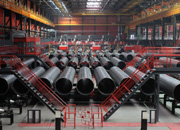 Threeway Steel is known as a professional supplier engaged in manufacturing and distributing a wide range of steel pipe, and our headquarter located the central part of China – Hunan and six associated factories throughout China.
Threeway Steel is known as a professional supplier engaged in manufacturing and distributing a wide range of steel pipe, and our headquarter located the central part of China – Hunan and six associated factories throughout China.
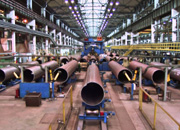 Threeway Steel is known as a professional supplier engaged in designing, manufacturing and distribution of a wide range of steel products with the headquarter located the central part of China – Hunan and six associated factories throughout China.
Threeway Steel is known as a professional supplier engaged in designing, manufacturing and distribution of a wide range of steel products with the headquarter located the central part of China – Hunan and six associated factories throughout China.
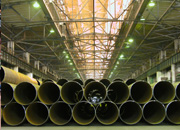 Threeway Steel is known as a professional supplier engaged in designing, manufacturing and distribution of a wide range of steel products with the headquarter located the central part of China – Hunan and six associated factories throughout China.
Threeway Steel is known as a professional supplier engaged in designing, manufacturing and distribution of a wide range of steel products with the headquarter located the central part of China – Hunan and six associated factories throughout China.
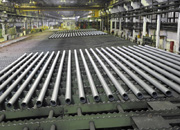 Threeway Steel is known as a professional supplier engaged in designing, manufacturing and distribution of a wide range of steel products with the headquarter located the central part of China – Hunan and six associated factories throughout China.
Threeway Steel is known as a professional supplier engaged in designing, manufacturing and distribution of a wide range of steel products with the headquarter located the central part of China – Hunan and six associated factories throughout China.
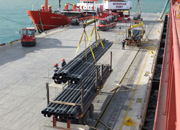 Threeway Steel is known as a professional supplier engaged in designing, manufacturing and distribution of a wide range of steel products with the headquarter located the central part of China – Hunan and six associated factories throughout China.
Threeway Steel is known as a professional supplier engaged in designing, manufacturing and distribution of a wide range of steel products with the headquarter located the central part of China – Hunan and six associated factories throughout China.

